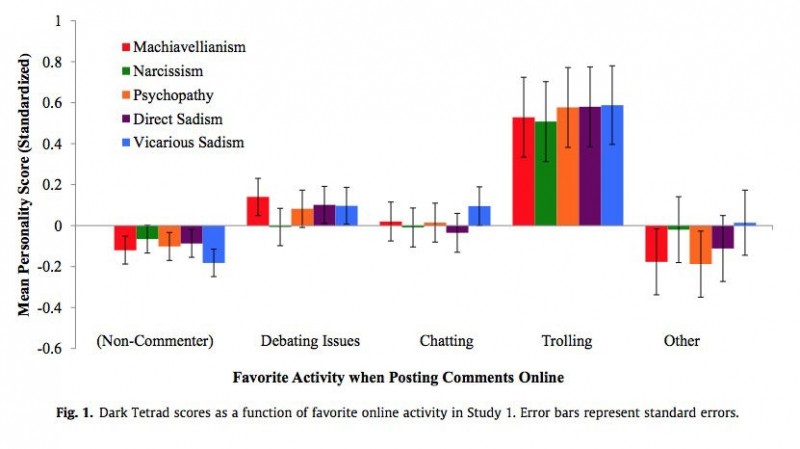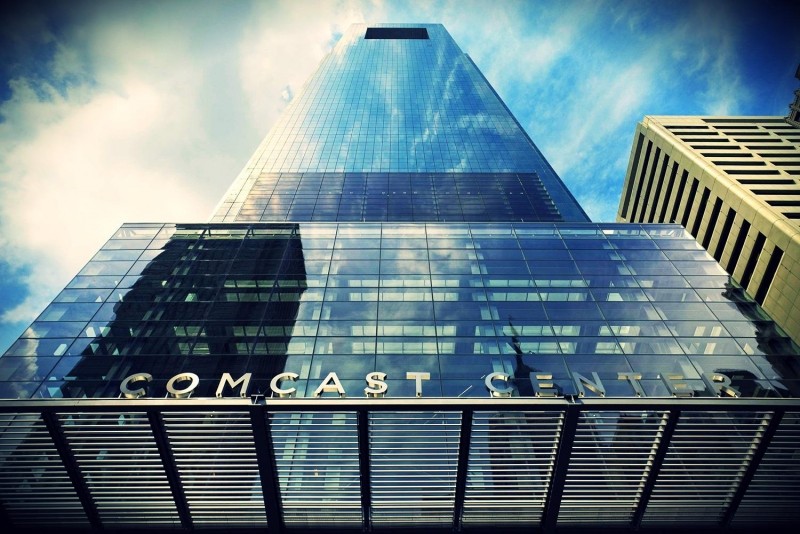Why the Comcast-Time Warner deal is far more dangerous than you think The Comcast-Time Warner Cable deal is bigger than you think. In agreeing to pay $45 billion for Time Warner Cable, Comcast hopes to create not only an enormous cable TV provider, but the largest broadband internet provider in the United States and a company that controls about half of all "triple play" services, which bundle cable TV and broadband alongside internet-based telephone connections. And that only begins to describe the magnitude of the deal. Wired (more commentary at The Verge, GigaOm, Ars Technica and TechDirt)
RoboCop writer Ed Neumeier discusses the film's origins As a recent film-school graduate looking to break into the movies, Ed Neumeier wound up going directly to the source, working as a script reader and junior executive on the MCA studio lot. After getting the idea for RoboCop, he and another young screenwriter, Michael Miner, worked on the script during off hours and weekends, and finally passed a first draft around. Neumeier tells the whole story in the interview below, but suffice to say the film, which he also co-produced, became such a sensation that's it's been spun off into two sequels, multiple TV series, and now a remake... The Dissolve
What Google really means when it calls Android 'open' The gooey center of Google's pitch to developers to make apps and services for Android is a series of terms easily misunderstood, but central to Android's flexibility and success. Every once in a while, Android terminology discussions flare up like a stomach ulcer for Google. They center on Android's nature as a development platform, which in turn affects the variety and breadth of Android apps – from Minecraft to Pandora to the latest Flappy Bird copycats – that you can download, and how up-to-date they are. Is Android truly open-source? CNET
Cheap words Amazon is a global superstore, like Walmart. It's also a hardware manufacturer, like Apple, and a utility, like Con Edison, and a video distributor, like Netflix, and a book publisher, like Random House, and a production studio, like Paramount, and a literary magazine, like The Paris Review, and a grocery deliverer, like FreshDirect, and someday it might be a package service, like U.P.S. Its founder and chief executive, Jeff Bezos, also owns a major newspaper, the Washington Post. All these streams and tributaries make Amazon something radically new in the history of American business. The New Yorker
The new normal: 200-400 Gbps DDoS attacks Over the past four years, KrebsOnSecurity has been targeted by countless denial-of-service attacks intended to knock it offline. Earlier this week, KrebsOnSecurity was hit by easily the most massive and intense such attack yet – a nearly 200 Gbps assault leveraging a simple attack method that industry experts say is becoming alarmingly common. At issue is a seemingly harmless feature built into many Internet servers known as the Network Time Protocol (NTP), which is used to sync the date and time between machines on a network. Krebs on Security
Why indie developers go insane After I started writing games in 1994 and went full-time in 1995, I soon came to a conclusion about the people who do what I do for a living: "These people are all crazy." Then, as I got older, I realized that I am crazy too. Then, as I got even older, I switched to a better truth: Everyone is crazy. Every human has his or her damage. Nobody gets out of this world alive. It's just that indie developers tend to have high visibility, high stress, and small support groups. These factors mean that, when these devs break, you see it, and it's spectacular. The Bottom Feeder
Flickr turns 10: The rise, fall and revival of a photo-sharing community If you happened to be at the O'Reilly Emerging Tech Conference in San Diego 10 years ago today, on February 10, 2004, you had the opportunity to witness a meaningful moment in the history of the web – though I doubt that anyone in attendance realized it at the time. The creators of a Vancouver, B.C.-based startup called Ludicorp Research & Development were at the conference mostly in order to talk about the technology behind Game Neverending, an online virtual world they were building. Time
Inside the Google Earth satellite factory Behind a long rectangular window, in a high white room tended by ghostly figures in masks and hats, a new satellite is taking shape. Once in orbit later this year, WorldView-3 will be one of the most powerful Earth observation satellites ever sent into space by a private company. Spinning around the planet some 600 kilometres (370 miles) above us, it will cover every part of the Earth's surface every couple of days. Ball Aerospace in Boulder, Colorado is building WorldView-3 for commercial satellite operator DigitalGlobe. BBC
Internet trolls really are horrible people In the past few years, the science of Internet trollology has made some strides. Last year, for instance, we learned that by hurling insults and inciting discord in online comment sections, so-called Internet trolls (who are frequently anonymous) have a polarizing effect on audiences, leading to politicization, rather than deeper understanding of scientific topics. That's bad, but it's nothing compared with what a new psychology paper has to say about the personalities of trolls themselves. Slate

Netflix slow on Verizon or Comcast? A VPN might speed up that video Since reporting on Netflix data that shows months-long declines in streaming performance on Verizon and Comcast, we've heard from several readers who say they've eliminated video problems by using VPN services. "Netflix on Comcast tanked for us in the past month or two," one commenter wrote. "We would spend more time buffering than actually watching video. Once we set up a VPN with UnblockUs it magically went away." Ars Technica (Netflix says it isn't so. Also, House of Cards Season 2 is out.)
New laser network between NYSE and NASDAQ will allow high-frequency traders to make even more money High-frequency trading – the practice of making thousands of algorithmic stock trades per minute – is about to get a big boost in the USA. Anova, a company that specializes in deploying low-latency networks for stock trading, is completing an ultra-high-speed laser network between the New York Stock Exchange (NYSE) and the NASDAQ. The link will be just a few nanoseconds faster than the current microwave and fiber-optic links... ExtremeTech
The economics of Star Trek I've been reading a lot about robots lately. When I read about robots, and the future, I can't help but think about it in economic terms. And that inevitably turns my mind to the branch of economics called post scarcity economics. Traditional economics, of course, deals with the efficient allocation of inherently scarce materials. Post scarcity economics deals with the economics of economies that are no longer constrained by scarcity of materials – food, energy, shelter, etc. Medium
